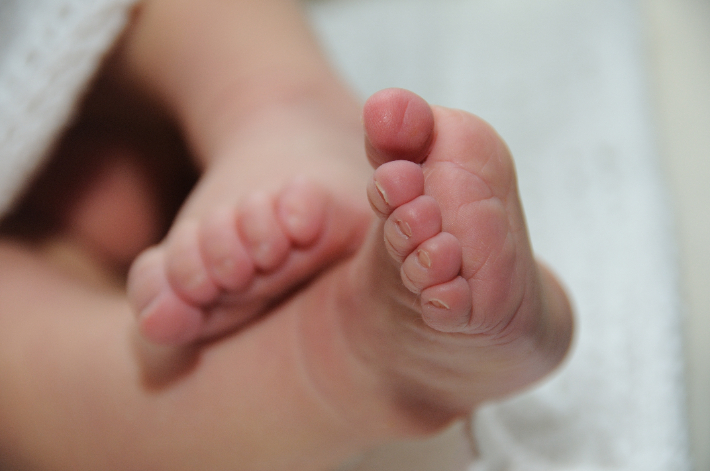Provide an intelligent image
Babies born by cesarean section have a weaker immune response to vaccines than babies born normally, according to one study.
A research team led by Professor Debbie Bogart, a pediatric infectious medicine specialist at the University of Edinburgh Medical School in the UK, together with a research team from the University of Utrecht Medical Center in the Netherlands, conducted a study of 120 newborns born through vaginal delivery or cesarean section. HealthDay News reported on the 26th.
The research team followed and observed the microbial composition in the feces of these infants from meconium, the first stool after birth, up to one year of age.
As a result, vaginal babies had higher levels of bifidobacterium and Escherichia coli than those born by cesarean section.
In addition, the research team collected saliva after the pneumococcal vaccine given at 1 year and the meningitis vaccine given at 18 months and measured the degree of antibody formation.
Babies born vaginally, which contained many beneficial bacteria such as bifidobacterium, showed a rate of antibody formation against pneumococcus and preventative meningitis twice as high as babies born by cesarean section.
While there were no other vaccines like the flu and BCG, these beneficial bacteria are known to affect the formation of antibodies in other vaccines.
Babies born by caesarean section also developed antibodies when they were vaccinated. It’s just that the number of antibodies was lower than in vaginal babies.
Thus, the research team emphasized that he was not without vaccine protection.
The research team added that all of the newborns studied were born at full term, so there was no chance they were suffering from premature birth or other diseases.
The research team hypothesized that this difference in immune response between babies born vaginally and those born by caesarean section could be due to the different types of beneficial bacteria present in the baby’s body at birth.
Birth is leaving the barren space of the womb and entering a world full of germs.
Microorganisms such as bacteria, fungi, viruses and archaea live in our body, eventually overtaking human cells.
One of the roles of these microbes is to train our immune system in the early stages of life.
At birth, the first thing that is affected as it passes through the mother’s birth canal are the bacteria that live in the mother’s vagina.
However, when a baby is born by caesarean section rather than a vaginal birth, the first microorganisms to enter the body are bacteria that live on human skin, in hospitals or at home.
The initial communication between the infant’s immune system and the microbiome at birth is especially important, the researchers point out.
That’s because microbes that live in your gut release chemicals called short-chain fatty acids, signaling your immune system to act.
Without this process, the research team explained that fewer B cells, immune cells that produce antibodies, are produced.
In this regard, Professor Neil Maebott, an expert in immunology at the Roslin Institute at the University of Edinburgh, said: ‘It is not clear whether microorganisms in the body directly influence the increase in the immune system’s antibody response. He commented that this suggests that it might be possible to administer
The findings were published in the latest issue of Nature Communications, a British scientific journal.


